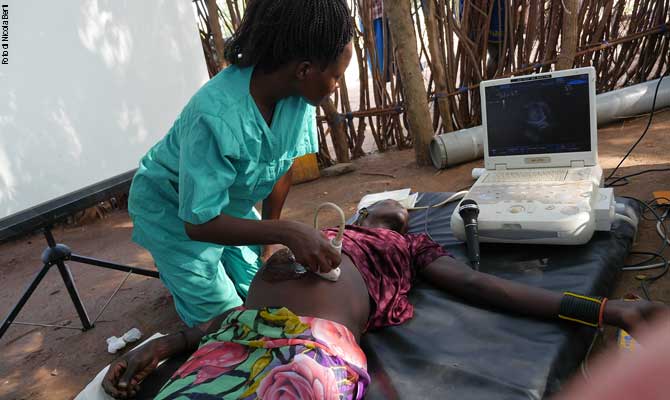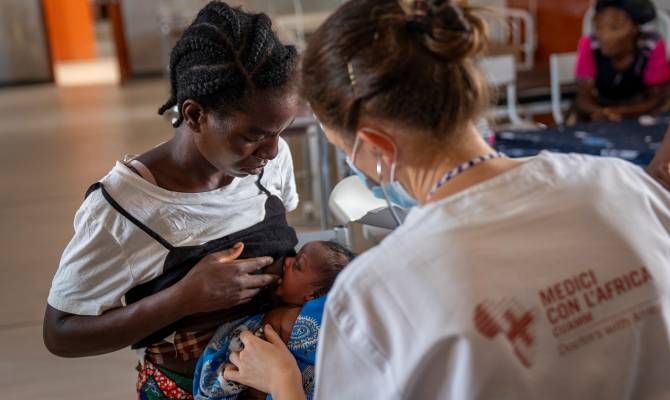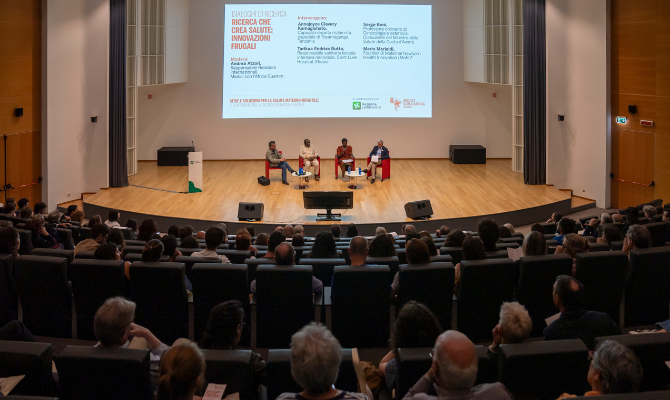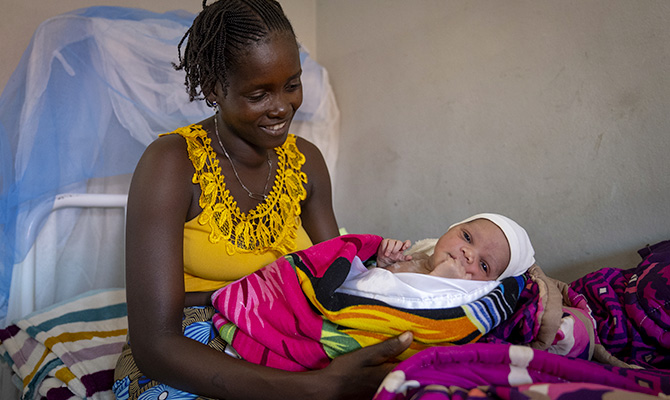22 April: Celebrating women’s – and girls’ – health!
For the first time ever, Italy will be celebrating “Women’s Health Day” this year in order to focus the nation’s attention on the issue of women’s health care and prevention and to underscore the fundamental role that women play both in their own families and the broader community, not only in Italy but worldwide.
We at Doctors with Africa CUAMM celebrate women every day, and we are committed to keeping them healthy and well during pregnancy and childbirth – one of the most delicate stages in a woman’s life – as well as motherhood. More and more often, we have been supporting very young women – those who become pregnant and have children before the age of 18 – and helping them to cope with the difficult physical, social and psychological consequences of their situation.
From early marriage to teen pregnancy
The global population forecasts are clear: there will be more than 9 billion people on earth by 2050, and that growth will take place mainly in developing countries. In 2009, there were more than 1.2 billion teenagers – that is, young people from 10 to 19 years of age – in the world, accounting for almost 20% of the global population. Today, most of them live in low-income countries, especially in African nations such as Nigeria, Ethiopia and Tanzania.
And their numbers continue to grow, leading to a new set of problems to be tackled and – whenever possible – prevented altogether. Teen pregnancies, in fact, are on the rise: more than 16 million young women aged 15 to 19 give birth every year, and another 16 million get pregnant for the first time under the age of 15.
In Sub-Saharan Africa
In Sub-Saharan African countries early pregnancy is frequently the consequence of forced and early marriages by very young girls; indeed, almost 120 million African girls are coerced into marrying before they reach 18. The situation in Mozambique is especially bad, with some 48.2% marriages involving girls under the age of 18. Making the situation worse is an often complete lack of access to education on sexual and reproductive health and family planning.
Emergency and crisis situations – such as that which occurred during the recent Ebola outbreak in Sierra Leon – can also impact girls very negatively. As Giovanna De Meneghi, a CUAMM staff member, explains,
“The situation – enormous social stress and a complete lack of the normal networks of protection – led to adolescent girls here being forced to prostitute themselves in exchange for protection and nourishment, with consequent increased levels of gender-based violence (which are already very high in Sierra Leone) as well as more pregnancies among teenagers”.
It was against this sort of alarming general backdrop that the United Nations Secretary-General, Ban Ki-moon launched the Global Strategy for Women’s and Children’s Health several years ago to underline the importance of addressing the issue of the health and well-being of teenage girls.
Obstetric complications in adolescent girls are on the rise
There are many risks associated with pregnancy at a young age, both for the future mother and for the baby she is carrying, including eclampsia, puerperal endometritis, infections and risks associated with Cesarean deliveries. But one of the most common causes of death in pregnant teenage girls is obstetric complications.
A study recently carried out in Sierra Leone by a Doctors with Africa CUAMM team made an important finding: 31% of obstetric complications recorded in Pujehun District – eclampsia, sepsis and damage following prolonged labor – were found in teenagers between the ages of 13 and 19. Abortion-related complications can also have negative consequences for the health of young women.
In Mozambique, alongside its general health care work Doctors with Africa CUAMM is partnering with local and national authorities to support six clinics specifically for teenagers. Called Servicios Amigos dos Adolescentes (SAAJ), the aim of this network is to help young people between the ages of 10 and 14 to learn more about their own health, providing advice on teen reproductive and sexual health, pre- and post-natal pregnancy visits, and information on HIV treatment and birth control.
The implications for girls’ education and the risk of contracting other diseases
There are also social costs to early pregnancy: young girls who become pregnant are unable to complete their educations, thereby limiting their knowledge and skills as well as their opportunities to create stable futures for themselves.
In addition, if unmarried they often end up socially ostracized and impoverished. Becoming pregnant at an early age also entails an added risk of contracting HIV. In Mozambique 11.5% of recorded cases of HIV are found in young people aged between 15 and 29, and the number of teenagers being tested for the virus continues to rise.
Victor Hugo described adolescence as “the most delicate of transitions”. For young African women, it is a phase that calls for special protection, education and steady assistance. We at Doctors with Africa CUAMM will continue to do our part to support both young women – the foundation of the world’s future – as well as women at every other stage of life.





